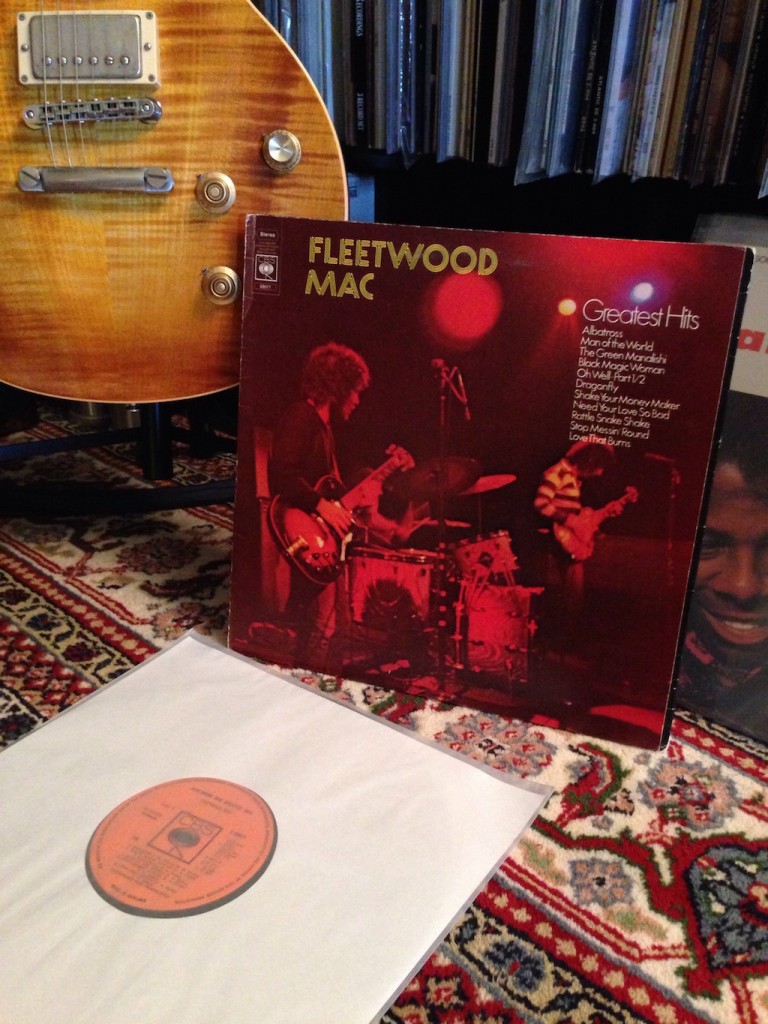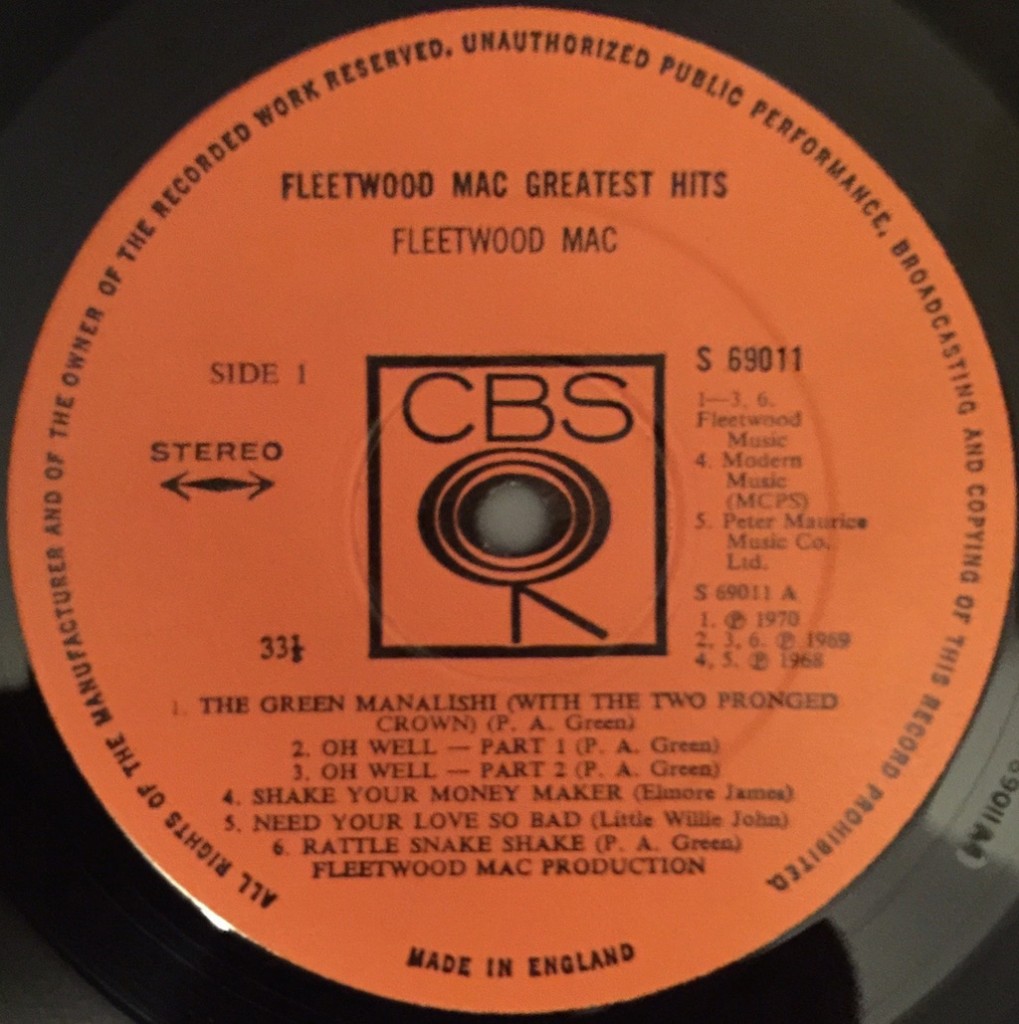
Any catalog of the Warner-related labels during their golden years would necessarily include the early Fleetwood Mac albums on Reprise- self-titled and Rumours, which sold in staggering quantities. Those albums, released on Reprise in 1975 and 1977, brought a level of international recognition to the band that endures today.
But of far greater interest to me is the early Fleetwood Mac, a different band, with a darker, bluesy sound that featured the brilliant Peter Green. Those records did not make much of a dent in the U.S. market, even though one of the songs- “Black Magic Woman,” written by Green, became a radio staple when Santana later covered it. Green was not only a gifted writer and vocalist, but a masterful guitarist whose Les Paul “burst” had as storied a career as Green himself.
One of the best ways to access this early material is a 1971 compilation album on CBS UK, simply titled Fleetwood Mac Greatest Hits. [1]
 It spans the early years, from releases on the Blue Horizons label, as well as the beautiful single, “Man of the World” released on Immediate Records, to that lashing precursor of heavy metal, “The Green Manalishi” released on Reprise (which became a signature song for yet another band, Judas Priest).
It spans the early years, from releases on the Blue Horizons label, as well as the beautiful single, “Man of the World” released on Immediate Records, to that lashing precursor of heavy metal, “The Green Manalishi” released on Reprise (which became a signature song for yet another band, Judas Priest).
I consider this an essential album for several reasons: it is the most accessible way “in” to the Peter Green era of Fleetwood Mac, which was well recognized in the U.K. at the time, but had little impact in the States; it collects some of the most important tracks from the early albums, along with singles and it sounds good.
If you haven’t heard this Fleetwood Mac, you are in for a treat: it is not commercial pop but blues-oriented hard rock. This compilation presents the dexterity of the band from hard driven, drug-induced madness, to tuneful, lilting ballads. It is a starting point for listeners to delve into the band’s earliest, darkest and, in my estimation, best work.
Peter Green achieved mythic status simply by walking away from the music business just as the band started to achieve real commercial success; he suffered from serious psychiatric illness, apparently aggravated by heavy use of LSD. As of this writing Green still performs periodically, and has reemerged occasionally over the years, but his legacy was firmly established by the early work, as reflected on this compilation.
The story of his guitar is equally fascinating; like many other rock guitarists of the era in Britain, he played an early Les Paul—a ’59 “burst” which itself achieved mythic status.
When Green renounced any interest in the business of music, he virtually gave the guitar away to a young Gary Moore, who went on to record many records, including a tribute to Green as well as a notable blues album, Still Got the Blues, which featured the guitar on the cover. Part of its magic was an out of phase pick-up (there is controversy over this as well), which gives the guitar an uncharacteristic sound when both pick-ups are switched on. Moore performed and recorded with the guitar for years, until it was sold for a considerable sum to an un-named American collector, who, in turn, had Phil Harris, a UK specialist in high-end guitars, serve as its custodian. The guitar is now in the hands of Metallica’s Kirk Hammett.
Although Green played the guitar using Fender and Orange amplifiers in the day, hearing one of these early Les Pauls through a tube-driven Marshall stack is the archetype of the hard rock/blues sound. And while numerous guitar-oriented magazines have attempted to explain precisely why the guitar sounds the way it does, (much like experts analyze what contributes to the sound of instruments like a Stradivarius), I think the answer here is no mystery: in the hands of Peter Green, it was being played by a gifted, though tragic figure, blessed with real genius.
Although the later incarnation of Fleetwood Mac was far more successful and well known, these early tracks are, to me, the “best” of the band by that name. Highly recommended.
_______________________
[1] You want the 1971 UK pressing on the orange label, as shown here, and not other compilations, which may have the “greatest hits” moniker, but are of later incarnations of the band.